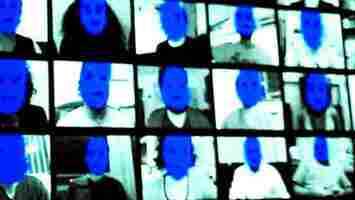How on Earth is Elon Musk’s SpaceX facing bankruptcy?
The richest person in the world is worried about money. Elon Musk, whose net worth is estimated at $310 billion , says his space company faces the threat of going bust.

In an email to SpaceX staff that was first obtained by Space Explored , Musk said the firm could go under due to issues producing Raptor rocket engines.
The Raptor engines power SpaceX’s Starship rockets, which the company hopes to take people to the moon and Mars. Musk told staff that a “Raptor production crisis” threatens the firm’s future:
The Tesla tycoon later acknowledged the report on Twitter:
In a separate tweet, he confirmed that Raptor production problems were the biggest potential bottleneck for future Starship flights.
The dire warning may come as a surprise, given SpaceX’s apparent success.
The firm was recently valued at $100.3 billion, up from $74 billion in February. That makes it the second-most valuable private company in the world, according to CB Insights , behind only China’s Bytedance.
SpaceX has also continuously hit historic milestones, from becoming the first private company to successfully launch, orbit, and recover a spacecraft, to sending astronauts to the International Space Station.
However, Musk says the magnitude of the Starship program isn’t fully appreciated:
Musk added that both General Motors and Chrysler — then America’s biggest and third-largest automakers, respectively — declared themselves bankrupt in the Great Recession of 2008–09.
Undoubtedly, Starship is a phenomenally ambitious — and expensive — project. Yet Musk’s fears of bankruptcy may not be all they seem.
The comments could also pressure staff to deliver on his ambitious plans. Indeed, his memo to staff — sent the day after Thanksgiving — urged them to return to work:
Whether the company is on the verge of bankruptcy or not, Musk’s message will likely have got some more labor out of his employees — and moved SpaceX closer to resolving his rocket issues.
Zut alors! France spanks Google over ‘misleading’ hotel ranking algorithm
France’s competition watchdog has slapped Google with a €1.1 million ($1.3 million) fine over “misleading” hotel rankings generated by the tech giant’s algorithms.

The Directorate-General for Competition, Consumer Affairs and Repression of Fraud (DGCCRF) began to probe Google’s classifications after hoteliers complained about their ratings.
The investigation revealed that Google had replaced the rankings used by France’s tourism agency (Atout France) with the company’s own grading system.
The DGCCRF found that the algorithmic classification had been applied to more than 7,500 establishments found in Google search results.
The regulator said Google’s use of a five-star rating scale was “highly confusing” for customers, as Atout France uses the same type of model.
It called the classification system a “misleading commercial practice:”
The watchdog said the practice was also detrimental to hoteliers who received worse rankings than in the Atout France classifications.
The DGCCRF said Google has agreed to pay the fine and has reverted to toe official rankings used by France’s tourist agency.
The $1.3 million fine is negligible to Google, but the move to France’s official star system should satisfy the country’s hoteliers.
As for tourists, the switch should offer reassurance that the ratings they see in Google Maps and Search will now reflect the quality of accommodation, rather than the results of algorithmic manipulation.
Lawsuit seeks to end Clearview AI’s operations in California
A month after Clearview AI was declared illegal in Canada , activists have filed a lawsuit seeking to stop the company’s operations in California.

The complaint was filed on Tuesday by two immigrants’ rights groups and four individual political activists.
They allege that Clearview has violated the privacy rights of Californians by scraping their photos and extracting their biometric data without gaining consent.
The suit also argues that Clearview’s facial recognition tech facilitates government monitoring of protesters, immigrants, and people of color.
The software has reportedly been used by more than 2,400 law enforcement agencies. The plaintiffs allege that it’s still used by police in California — even though several cities in the state have banned government use of facial recognition tech.
Sejal Zota, a lead attorney in the case, said there can be no meaningful privacy in a society with Clearview:
The suit is seeking an immediate injunction that would prevent Clearview from collecting any biometric data in California. It also seeks the deletion of all the personal data that’s already been collected by the firm.